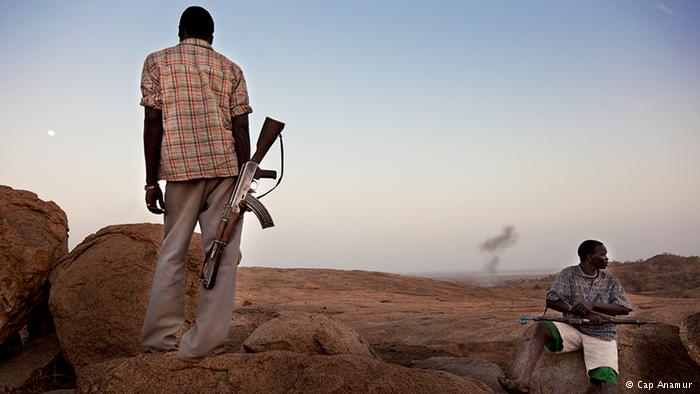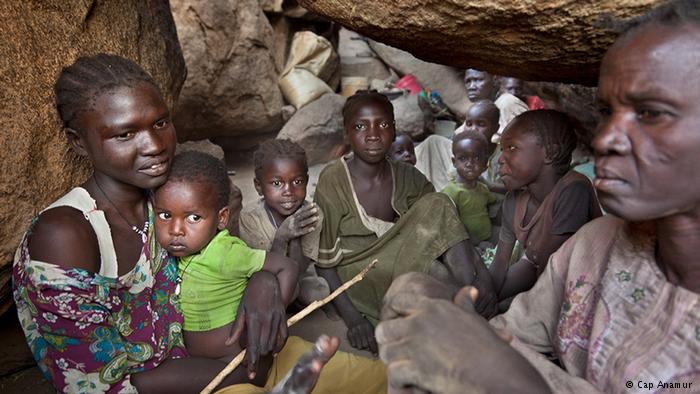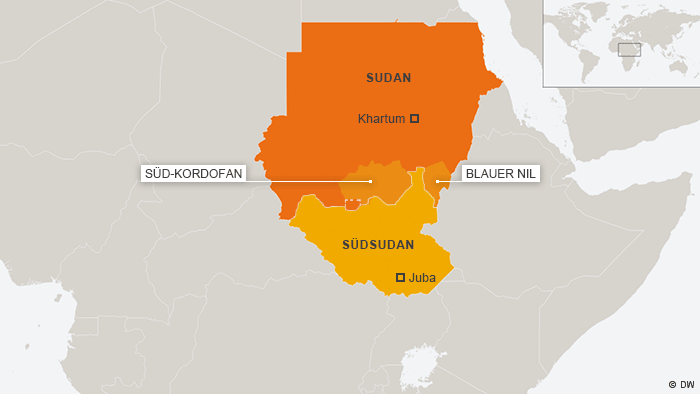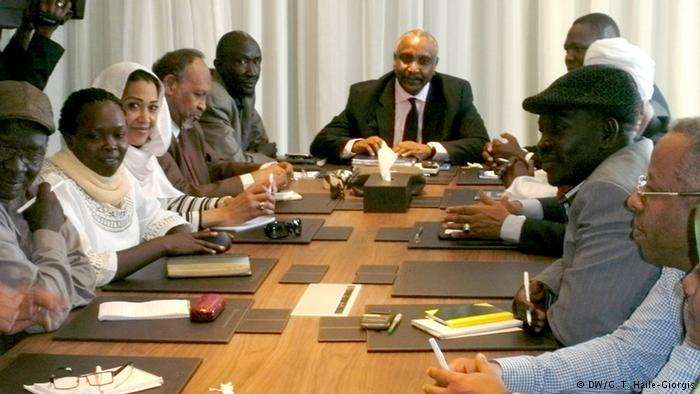Sudan
Sudan: negotiations failed
In Berlin, the informal peace talks between the Sudanese government and the armed movement SPLM-N failed. The South of Sudan remains of relief from the surroundings.

“You should be able to assume that according to international humanitarian law the people in the hostile regions not aushungert be”, says Ulrich Delius of the society for threatened peoples (GfbV) dismayed. But that’s exactly what happens, especially in the Sudan: Delius speaks of hundreds of thousands of needy people in the border areas in South Kordofan and the province of Blue Nile. With them since 2012, no official emergency aid. The areas bordering South Sudan, in 2011 after a Referendum regardless.
The supply of the population in these parts of the country, was also at last weekend’s topic in Berlin at the informal peace talks between delegates from the Sudanese government and the armed movement, Sudan People’s Liberation Movement-North (SPLM-N). It is one of several active rebel groups in the Region. The group went from the same South Sudanese People’s Liberation Movement (SPLM) as the Südsundan separated.

A humanitarian disaster: women and children hide in the mountains, to the bombing of the army to escape. Emergency aid reaches the areas not
At the negotiating table in Berlin sat SPLM-N Secretary-General Yasir Arman, as well as a delegate from the Sudanese President Omar Al-Bashir and the African Union mediator. Despite both sides bekundeter “openness” for a solution, were the conversations in the Void – again. To date, ten official rounds of negotiations failed. Add to that now, two informal Attempts in Addis Ababa last December and now another. “The hope of the negotiation process in Berlin to advance, has unfortunately not been confirmed. This is bitter for the people in the conflict regions,” says Delius.
The struggles in the southern States of southern Kordofan and the province of Blue Nile hold since 2011. On the one side, armed opposition groups, including the SPLM-N. On the other hand, are fighting the Sudanese army and Pro-government militias. The rebels are revolting against the Arab-Muslim Central government in Khartoum. In the conflict, it comes to the distribution of land and resources. The gap between the conflicting parties exist already very much for a long time, explains the social researchers Enrico Ille of the research group on Law, Organisation, Science and Technology at the University of Halle. “Over ten years ago, the relationship was within the government’s very Kriegslinien shaped. Whether you are for the government or for the SPLM-N – so has been identified.” Ille currently lives in Omdurman with Khartoum, and has many years in the Nubabergen research.

In the regions of South Kordofan and Blue Nile leads the SPLM-N war against the government in Khartoum
Government prevents humanitarian aid
As the Flüchtlingswerk the United Nations reports, preventing the Sudanese government in many places, that humanitarian organizations into crisis areas to penetrate. The army went even further: they bombardiere churches, hospitals and marketplaces, says Delius of the GfbV. He is suspected behind a targeted strategy of war. “It is a Terror against the civilian population. This is to be achieved, that the people of the Rebellengebiet leave and in government-controlled areas is adequate.”
The Sudanese government insists that all relief supplies through their territory to send to the control to back up. Also, because the Sudanese authorities again and again weapons in the deliveries is suspect. “It’s not only the humanitarian solution, but in order to strategic resources,” says Delius. It should be prevented, that the area, the production and South Sudan.

November 2015: the tenth, the official Round of negotiations fails
Germany as mediator controversial
That it at the Berlin talks, even after four years of humanitarian crisis was not possible, a solution for the access relief to find, except for Ulrich Delius is very frustrating. Germany’s role in the negotiations was generally disputed. “There are always issues, for example, whether, for example, the government of Sudan will be enhanced.” The government of President Al-Bashir is strong international criticism. In 2008, the International criminal court (ICC) against him a warrant of arrest for genocide, crimes against humanity and war crimes in the Darfur conflict. Al-Bashir has ruled the country since 1993.
On a DW request is answered, the Federal Foreign office (AA) “the Federal government has as the host for the Meeting of the parties to the conflict acted, and the concern with technical advice supported.” The Federal Republic of Germany promotes first and foremost the efforts of the African Union, the AA further.
“The story is full of broken agreements,” says Enrico Ille. The government in Khartoum have confidence severely damaged. In June 2011, there have already been a peace agreement given that the President single-handedly has lifted. “It is from both sides, little willingness is there.”
